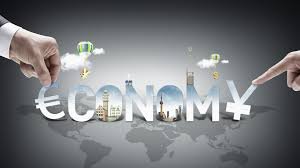Understanding the world economy(for newbies)
The world economy is built on the interaction of individuals, businesses, and governments across the globe. It is driven by the production, distribution, exchange, and consumption of goods and services.
Economic activity is facilitated through a system of markets, including commodity markets, labor markets, and financial markets. The functioning of these markets is influenced by government policies, technological advancements, and the availability of resources. The global economy is also impacted by international trade, investment, and financial flows, as well as economic, political, and social factors that vary between countries.
The world economy is made up of multiple economies of various sizes and complexities, ranging from large industrialized economies to small, agrarian-based economies. The economies of the world are interconnected, and changes in one country can have far-reaching effects on other countries. For example, a financial crisis in one country can lead to a decrease in demand for goods and services globally, causing a slowdown in economic growth.
International trade plays a significant role in the world economy. The exchange of goods and services between countries allows for greater specialization and the efficient allocation of resources. This, in turn, can lead to lower costs, higher quality products, and increased economic growth. Investment flows also play a crucial role in the world economy, as they help to finance new businesses and provide capital for growth.
Financial markets are also a key component of the world economy. They provide a mechanism for companies and governments to raise capital, and for individuals and institutions to invest their savings. Financial markets can also facilitate the transfer of risk, allowing businesses and individuals to manage their exposure to economic uncertainty.
Governments play an important role in the world economy through their economic policies. These policies can include monetary policy, fiscal 9policy, and trade policy, among others. For example, a government may use monetary policy to control inflation, by adjusting the money supply or interest rates. Fiscal policies can also influence the distribution of wealth and economic opportunities within a country, and can play a crucial role in promoting economic growth and stability.
The world economy is a complex and dynamic system, influenced by a wide range of factors. Understanding the functioning of the world economy requires a deep understanding of the interplay between markets, government policies, international trade, investment, and financial flows, and the various economic, political, and social factors that vary between countries.
Moreover, technological advancements have a profound impact on the world economy, shaping the way goods and services are produced, distributed, and consumed. The rise of the internet and digital technologies has transformed the way businesses operate and has created new industries, such as e-commerce and digital marketing. Advances in automation and robotics are changing the nature of work and the skill sets that are in demand.
Sustainability is also becoming an increasingly important issue in the world economy, as the negative impacts of economic activity on the environment are becoming more evident. Governments and businesses are increasingly focused on implementing environmentally-friendly policies and practices, such as reducing carbon emissions and promoting the use of renewable energy sources.
Finally, the world economy is shaped by globalization, which refers to the increasing interconnectedness of countries and the integration of economies on a global scale. This has been driven by advancements in transportation and communication technologies, as well as reductions in trade barriers. Globalization has created new economic opportunities, but has also led to increased competition and the need for countries to remain competitive in a rapidly changing world.
In conclusion, the world economy is a complex and constantly evolving system that is shaped by a wide range of factors, including government policies, technological advancements, resource availability, international trade and investment, and social and environmental factors. Understanding the functioning of the world economy is crucial for businesses, governments, and individuals to make informed decisions and promote economic growth and stability

